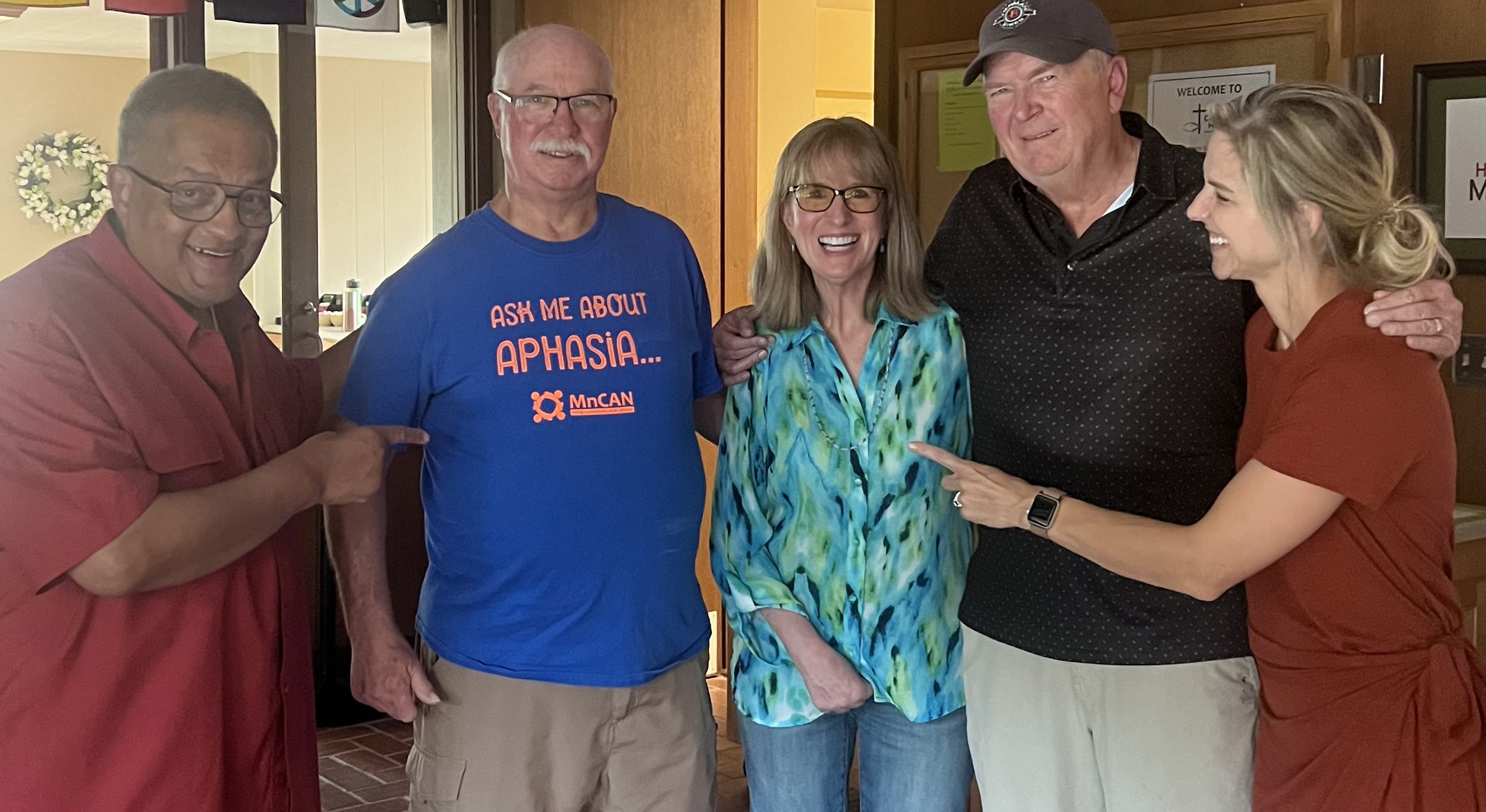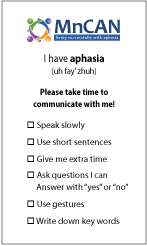Helping People with Aphasia Build Confidence, Enjoy Conversation, Gain Support and Find Connection.
OUR MISSION
The mission of MnCAN is to improve the life participation of individuals impacted by aphasia through comprehensive programs, education, peer connections and community support.
VISION STATEMENT
People with aphasia actively participate in life without barriers.
What is Aphasia?
APHASIA is a language disorder that affects the ability to speak, read, write, and understand what others are saying. It is caused by stroke, brain injury or some progressive neurological disorders. It does not affect intelligence. The inability to communicate can cause devastating isolation.
How can MnCAN help?
APHASIA turns someone’s life upside down as those words are stuck, making daily conversations, ordering food and saying the names of their loved ones, among other things, very very challenging. MnCAN provides a place fo these individuals living with aphasia to get together and get their thoughts and ideas out in a supportive environment.
MnCAN is a non-profit organization that provides services and support to people who are living with the impact of aphasia. It is a place to relearn and practice conversational speech skills and strategies, develop supportive relationships, and challenge each other to set new goals to participate in their communities and activities.
Sign-up to receive MnCAN Monthly Newsletters and Event Updates:
MnCAN Conversation Group
This video features one of our aphasia conversation group and founding, now retired, Executive Director, Julia Halvorson.
What our participants say about MnCAN
“I love MnCAN!”
“I enjoy the socializing with our group weekly. We are family!”
“I am much more confident in telling others, including strangers, that I have aphasia and they need to be patient with me when having a conversation. I have learned so much from the others in my group. I look forward to meeting them every week!”
“I was afraid to get out there again in the “world” and me seeing everybody else that struggles with the same things it was comforting. And all of a sudden was making plans and doing things by myself or with friends.”
“I like my groups a lot. They all had aphasia. We talked and talked. If I am in another group they don’t have aphasia I talk a lot less.”



